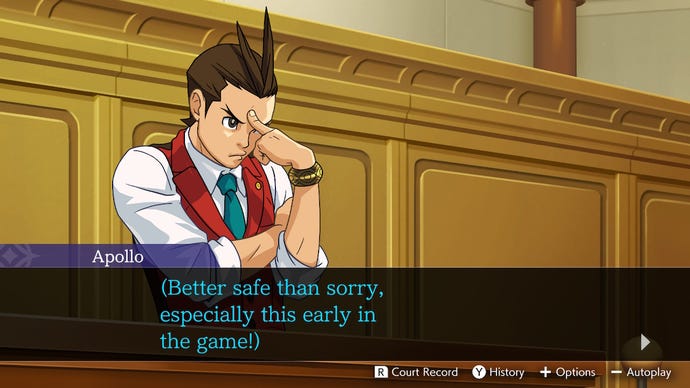Apollo Justice: Ace Attorney Trilogy preview – Mostly more of the same, but in the best possible way
Capcom's latest Ace Attorney remaster collection tells a different story but wisely sticks with a tried-and-true style.
Previewing the Apollo Justice: Ace Attorney Trilogy is an odd task. How exactly does one preview a whole trilogy, let alone a re-release of one whose first game came out 16 years ago? Especially given the position I'm in here, as an Ace Attorney fan who's been anticipating these remasters since before they were even announced, but nevertheless only got into the series through the last couple of similar compilations: 2019's re-release of the Phoenix Wright: Ace Attorney Trilogy, and the long-awaited 2021 worldwide release of the previously-Japan-only prequels The Great Ace Attorney Chronicles.
Now, obviously those previous remasters worked perfectly from a marketing perspective, because in five years I — and many others like me — have gone from someone with only the vaguest idea as to what Ace Attorney is to a die-hard fan. But, thinking I might never actually get to play the rest of the series, I haven't been too diligent about avoiding spoilers, including for the three games that are now coming to modern systems in this trilogy. So even though I've never played Apollo Justice, Dual Destinies, or Spirit of Justice before, I'm not exactly going in fresh either.
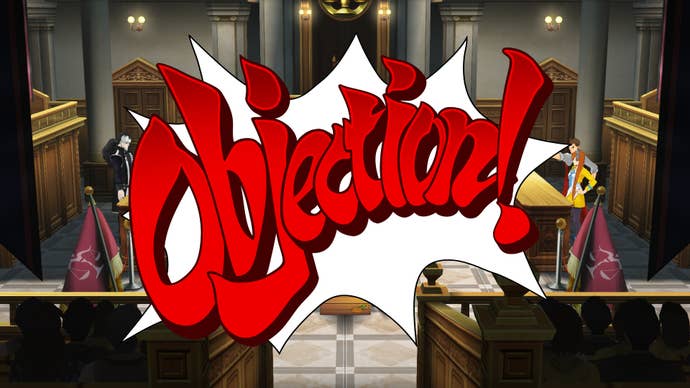
One of the things I like most about the world of Ace Attorney is that it's not static. Phoenix Wright et al are an anime-esque bunch who could easily be allowed to exist on comic book time, never ageing between instalments and with an easy status quo permanently maintained when it comes to their personal lives. You could, after all, keep writing goofy little murder mysteries for the gang to solve pretty much indefinitely without ever changing anything about them as people.
But no, the opening case of Apollo Justice: Ace Attorney presents perhaps the biggest shake-up in the series: throwing you into the shoes of the title character, a newcomer you haven't met before (unless you played Ace Attorney 4-6 when they first came out…), and hitting you with a ton of narrative advancements very quickly. Namely, that seven in-universe years have passed since the last game, Phoenix Wright lost his licence to practise law not long after the conclusion of his eponymous trilogy, and he's now a scruffy low-life living on the borders of the criminal underworld and making his living hustling at poker. Oh, and he has a kid. And is on trial for murder (again), but the kid thing's the real revelation; after all, returning players know this guy gets accused of murder all the time.
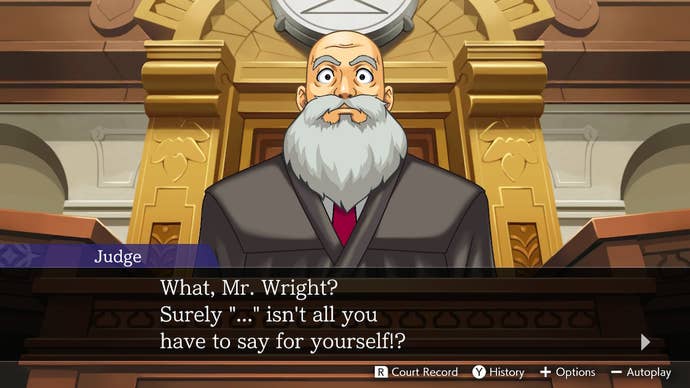
All of this is well-trodden ground by now in terms of established Ace Attorney lore, but it's worth taking a moment to appreciate that all of this is (or was, back in 2007) a pretty big punt on Capcom's part. The Ace Attorney games are primarily visual novels, so investment in the characters and their stories are a significant draw. Writing in a hefty time skip and demoting your iconic lead to a faintly antagonistic supporting player in the opening moments of a new game feels like a way to get long-time fans to switch off. Add some unexpected offspring into the mix — teasing the idea that some fan-favourite ships are about to get torpedoed by an off-screen relationship between games — and Capcom might've been lucky if the switch-off was only emotional and not literal.
Obviously, Ace Attorney is cleverer than that. We probably wouldn't be here 16 years later talking about the shiny new remasters if it hadn't been. I'm not about to give any more details about the story here, just in case you are one of the sweet summer children who's managed to avoid spoilers for these games, but that's your set-up going into the Apollo Justice Trilogy. But, needless to say, it's gonna go some places before we're all done.
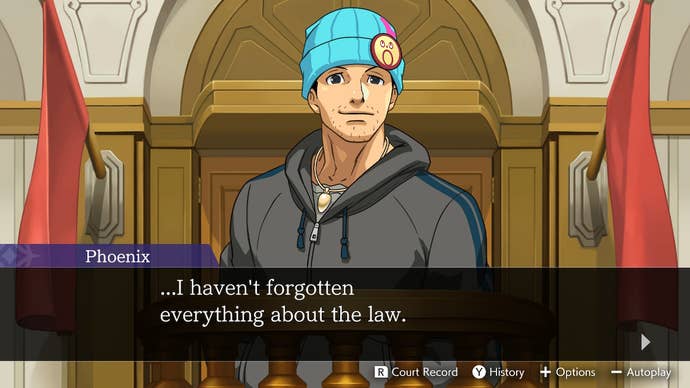
While this overhaul of characters and dynamics ultimately works in the series' favour, it is worth noting that Apollo Justice: Ace Attorney isn't a fantastic entry point into the series as a whole. Unlike The Great Ace Attorney Chronicles, which acts as a self-contained two-part prequel in a completely different setting, the Apollo Justice Trilogy assumes that you know the Phoenix Wright Trilogy well enough to pick up the narrative threads without any preamble.
Furthermore, given that Apollo Justice is the fourth game in the original release order, it treats the franchise's tendency to tell stories in non-linear chapters as well-established. Those familiar with Ace Attorney's tendency to come back and clarify the finer points later on won't be too concerned about the fact that many foundational questions remain unanswered by the end of the game's first part. But the pacing does feel a bit off-kilter at moments — particularly with regards to what we're meant to understand about the relationship between Apollo and his mentor, fellow newcomer Kristoph Gavin — even knowing that context is presumably on its way.
If this was your first experience of Ace Attorney, I can imagine all that being a bit off-putting. I strongly recommend playing the Phoenix Wright Trilogy first, even if the upcoming re-release of the Apollo Justice Trilogy is what initially caught your eye.
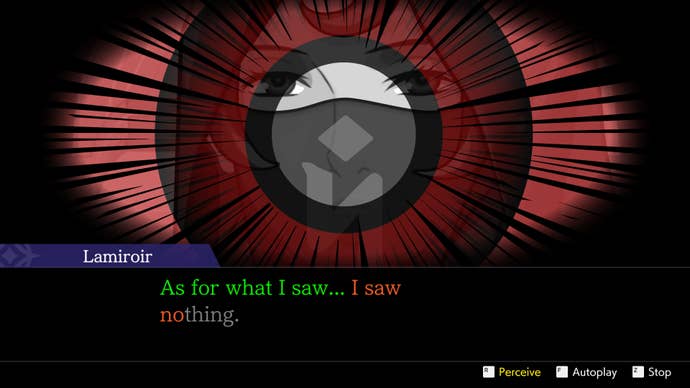
If you're still here, though — either because you're a long-time fan eager to check out pretty remasters of three games you already know inside-out, or because (like me) you're all caught up on the previous re-releases and raring to go with some games that are at least new-to-you — what can I say except that you're not going to be disappointed? Capcom's ongoing project to bring the Ace Attorney series to modern systems is beautifully consistent in what it delivers, and if you were drawn in by the last two compilations, the Apollo Justice Trilogy will almost certainly hit the same way for you. The redrawn art is a touch more painterly this time around, and there are one or two new investigative mini-games to get to grips with, but the overall experience is very similar to the other remasters in the series — and that's certainly no bad thing.
And if all of this is good news to you, then here's some more: there's quite simply a lot more game here, too! The trilogy includes complete remasters of the fourth through sixth mainline Ace Attorney games, plus the two cases originally released as DLC for Dual Destinies and Spirit of Justice. All together this clocks in at a grand total of 95 hours (thanks, HowLongToBeat.com!), making it easily the longest of the three remaster compilations, and hopefully taking some of the sting out of its slightly higher price tag compared to the previous two.
Luckily for returning players who just want to revisit their favourite cases, all 16 individual chapters in the trilogy are unlocked from the start, so you don't have to play through everything in those 95 hours in order if you'd prefer not to. There's also a museum mode accessible from the very beginning, showcasing everything from concept art to the anticipated fanfic-bait that is the new animation studio, adding even more bang for your buck. But, just to warn you, that additional content is not messing about when it comes to spoilers, so new players should maybe plan on steering clear until they've seen everything they want to of the games first.
Apollo Justice: Ace Attorney Trilogy will be released on January 25, 2024 on PC, PlayStation 4, Xbox One, and Nintendo Switch, and will set you back £40/$50. This preview was written based on the Switch version.
